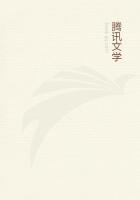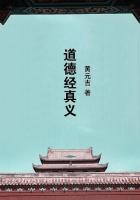The oldest documents of Indian mythology are the Vedas, usually reckoned as four in number. The oldest, again, of the four, is the Sanhita ("collection") of the Rig-Veda. It is a purely lyrical assortment of the songs "which the Hindus brought with them from their ancient homes on the banks of the Indus". In the manuscripts, the hymns are classified according to the families of poets to whom they are ascribed. Though composed on the banks of the Indus by sacred bards, the hymns were compiled and arranged in India proper. At what date the oldest hymns of which this collection is made up were first chanted it is impossible to say with even approximate certainty. Opinions differ, or have differed, between 2400 B.C. and 1400 B.C. as the period when the earliest sacred lyrics of the Veda may first have been listened by gods and men. In addition to the Rig-Veda we have the Sanhita of the Sama-Veda, "an anthology taken from the Rik-Samhita, comprising those of its verses which were intended to be chanted at the ceremonies of the soma sacrifice". It is conjectured that the hymns of the Sama-Veda were borrowed from the Rig-Veda before the latter had been edited and stereotyped into its present form. Next comes the Yajur-Veda, "which contains the formulas for the entire sacrificial ceremonial, and indeed forms its proper foundations,"the other Vedas being devoted to the soma sacrifice. The Yajur-Veda has two divisions, known as the Black and the White Yajur, which have common matter, but differ in arrangement. The Black Yajur-Veda is also called the Taittirya, and it is described as "a motley undigested jumble of different pieces". Last comes Atharva-Veda, not always regarded as a Veda properly speaking. It derives its name from an old semi-mythical priestly family, the Atharvans, and is full of magical formulae, imprecations, folk-lore and spells. There are good reasons for thinking this late as a collection, however early may be the magical ideas expressed in its contents.
Weber, History of Indian Literature, Eng. transl., p. 63.
Ibid., p. 86.
Ibid, p. 87. The name Taittirya is derived from a partridge, or from a Rishi named Partridge in Sanskrit. There is a story that the pupils of a sage were turned into partridges, to pick up sacred texts.
Barth (Les Religions de l'Inde, p. 6) thinks that the existence of such a collection as the Atharva-Veda is implied, perhaps, in a text of the Rig-Veda, x. 90, 9.
Between the Vedas, or, at all events, between the oldest of the Vedas, and the compilation of the Brahmanas, these "canonised explanations of a canonised text," it is probable that some centuries and many social changes intervened.
Whitney, Oriental and Linguistic studies, First Series, p. 4.
Max Muller, Biographical Essays, p. 20. "The prose portions presuppose the hymns, and, to judge from the utter inability of the authors of the Brahmanas to understand the antiquated language of the hymns, these Brahmanas must be ascribed to a much later period than that which gave birth to the hymns."If we would criticise the documents for Indian mythology in a scientific manner, it is now necessary that we should try to discover, as far as possible, the social and religious condition of the people among whom the Vedas took shape. Were they in any sense "primitive," or were they civilised? Was their religion in its obscure beginnings or was it already a special and peculiar development, the fruit of many ages of thought? Now it is an unfortunate thing that scholars have constantly, and as it were involuntarily, drifted into the error of regarding the Vedas as if they were "primitive," as if they exhibited to us the "germs" and "genesis" of religion and mythology, as if they contained the ****** though strange utterances of PRIMITIVE thought. Thus Mr.
Whitney declares, in his Oriental and Linguistic Studies, "that the Vedas exhibit to us the very earliest germs of the Hindu culture".
Mr. Max Muller avers that "no country can be compared to India as offering opportunities for a real study of the genesis and growth of religion". Yet the same scholar observes that "even the earliest specimens of Vedic poetry belong to the modern history of the race, and that the early period of the historical growth of religion had passed away before the Rishis (bards) could have worshipped their Devas or bright beings with sacred hymns and invocations". Though this is manifestly true, the sacred hymns and invocations of the Rishis are constantly used as testimony bearing on the beginning of the historical growth of religion. Nay, more;these remains of "the modern history of the race" are supposed to exhibit mythology in the process of ******, as if the race had possessed no mythology before it reached a comparatively modern period, the Vedic age. In the same spirit, Dr. Muir, the learned editor of Sanskrit Texts, speaks in one place as if the Vedic hymns "illustrated the natural workings of the human mind in the period of its infancy". A brief examination of the social and political and religious condition of man, as described by the poets of the Vedas, will prove that his infancy had long been left behind him when the first Vedic hymns were chanted.
Ibid., Rig-Veda Sanhita, p. vii.
Hibbert Lectures, p. 131.
Nothing can prove more absolutely and more briefly the late character of Vedic faith than the fact that the faith had already to be defended against the attacks of sceptics. The impious denied the existence of Indra because he was invisible. Rig-Veda, ii. 12, 5; viii. 89, 3; v. 30, 1-2; vi. 27, 3. Bergaigne, ii. 167. "Es gibt keinen Indra, so hat der eine und der ander gesagt" (Ludwig's version).

